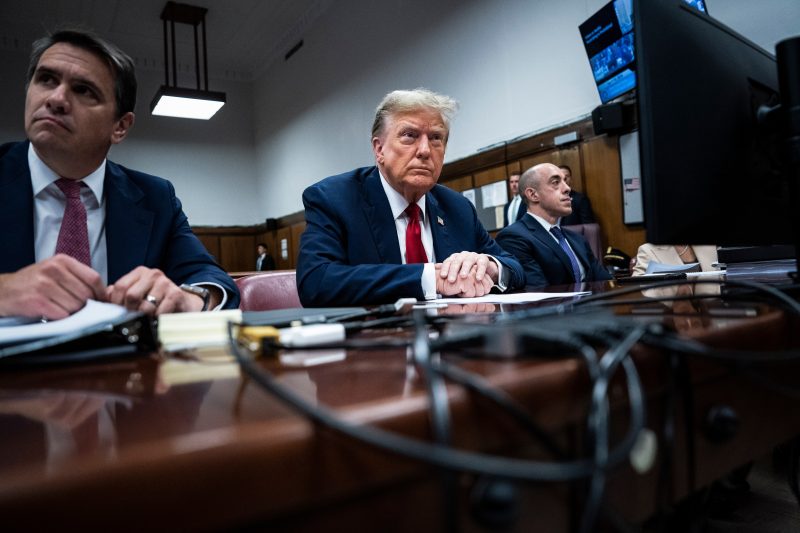In a recent high-profile trial in New York involving former President Donald Trump, the selection of the jury pool played a crucial role in the proceedings. Trump faced charges related to financial misconduct during his time in office, and the outcome of the trial largely depended on the jury’s composition. As potential jurors were called in to be screened for biases, their responses provided valuable insights into the public’s perception of Trump and the legal system.
One striking aspect of the jury selection process was the diverse range of individuals summoned to potentially serve on the panel. From teachers to accountants, retirees to students, the pool of prospective jurors represented various backgrounds and viewpoints. This diversity was important in ensuring a fair trial, as it allowed for a balanced consideration of the evidence presented.
During the voir dire process, both the prosecution and defense attorneys questioned potential jurors to uncover any biases or preconceived notions they might hold. Many jurors openly expressed their opinions on Trump, with some showcasing strong support for the former president while others displayed skepticism and distrust. These candid responses provided a glimpse into the broader societal divisions and political polarization that have characterized the country in recent years.
In a surprising turn of events, several jurors admitted to having followed the case closely in the media and forming initial opinions based on what they had seen and heard. Despite this, they assured the court that they could set aside their preconceptions and render a fair verdict based solely on the evidence presented during the trial. This demonstrated a commitment to upholding the principles of justice and impartiality, even in the face of highly publicized and controversial proceedings.
As the final jury panel was selected, it became evident that the group was a reflection of the wider community, with a mix of demographics, beliefs, and experiences. This diversity was essential in ensuring a comprehensive and nuanced deliberation process, where different perspectives and viewpoints could be considered before reaching a consensus.
The trial of Donald Trump in New York exemplified the importance of an impartial and diverse jury pool in upholding the principles of justice and fairness. The selection process shed light on the complexities of navigating public opinion, media influence, and individual biases in a legal setting. Ultimately, the jury’s ability to set aside personal opinions and render a verdict based on the facts underscored the resilience of the justice system in addressing contentious and divisive issues.

